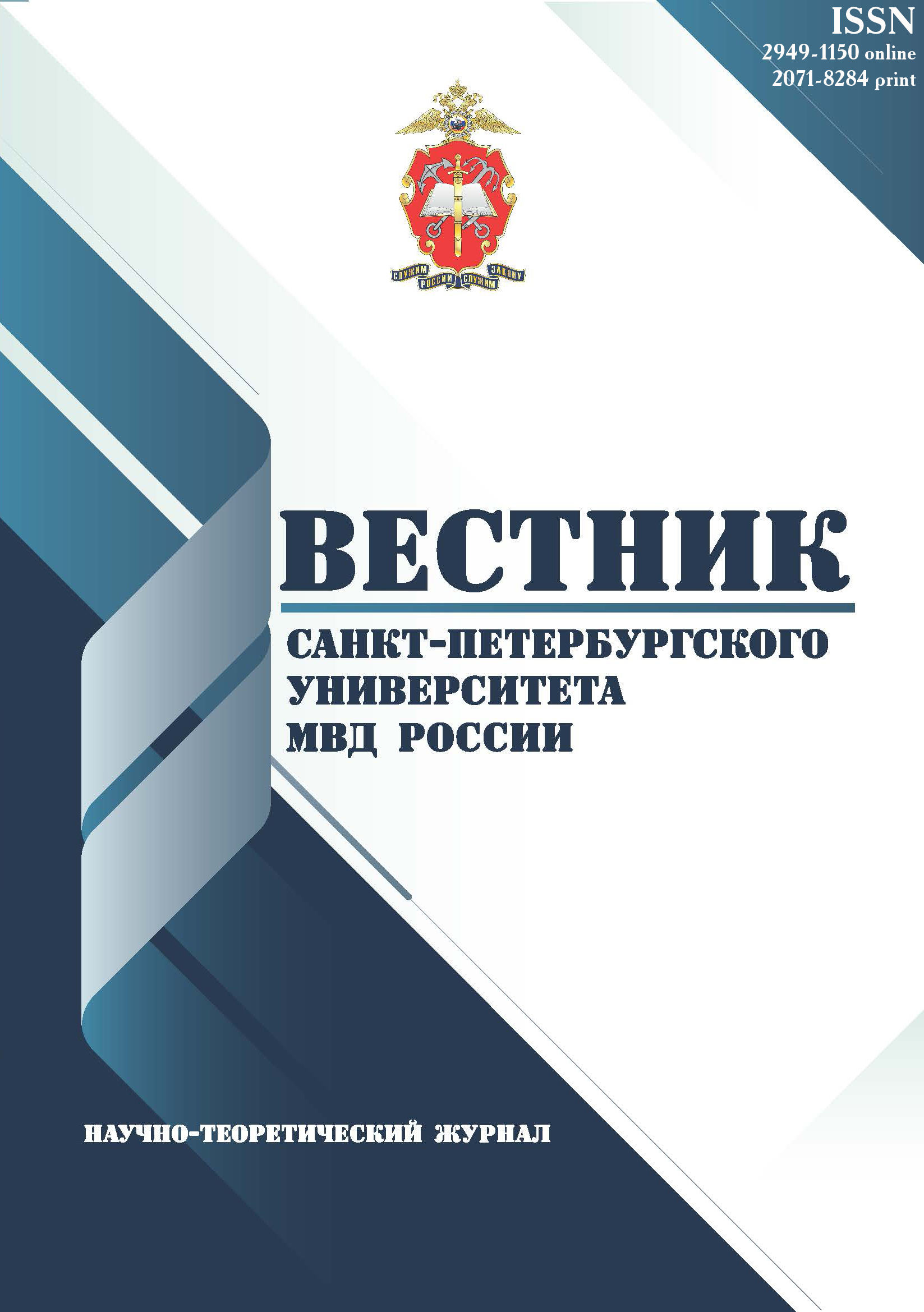from 01.01.2021 until now
Sochi, Krasnodar, Russian Federation
UDC 343.01
Introduction. Modern criminal law doctrine is a rather isolated system of knowledge regarding a clearly defined block of problems that are either strictly within the scope of criminal law or at the interface with other branches of law, in particular, criminal procedure and penal enforcement. Despite more than a thousand years of its development, many categories of criminal law do not go beyond its content, although they initially contain serious inter-branch potential. Responsibility is one of such categories, the ability of which to permeate several spheres of legal regulation is beyond any doubt. Methods. To achieve the objectives of the study, various scientific methods were used: materialist dialectics as a universal method of cognition, general scientific methods of cognition (system-structural, analysis, synthesis, induction, deduction), historical method in combination with hermeneutic, as well as private scientific methods, such as comparative-legal, method of legal modelling and extrapolation, surveys and questionnaires as a kind of sociological method. Results. The development of a unified mechanism of state coercion without its artificial division is possible precisely due to the possibilities inherent in the very idea of state violence against those who allow the possibility of socially dangerous behaviour. In contrast to the united West and the concept that was laid down in it quite a long time ago, and now it is implemented only at a new level, in the Russian doctrine, legislation and, accordingly, in the public consciousness dominate slightly different ideas to the stated problem. In many aspects, including historically, it is manifested through the attitude of society to responsibility, punishment, repression, retribution, and especially the death penalty, violence in general and the will of the authorities in relation to the one who committed the offence. As a result, the system of coercion is still not aligned, and its differentiation is excessively detailed, being divided into several sectoral areas, each of which is often practically isolated from each other. Responsibility is the category that can unite them, making it possible to talk about criminal-legal coercion as a whole.
responsibility, criminal law, penal law, criminal-executive law, state coercion, criminal-legal impact
1. Karpov K. N. Sistematizaciya «obschepravovyh» posledstviy soversheniya prestupleniya kak sredstv social'nogo kontrolya za licami, sovershivshimi prestuplenie // Vestnik Ural'skogo yuridicheskogo instituta MVD Rossii. 2023. № 3. S. 170–177.
2. Fil'chenko A. P. Vozniknovenie, smyagchenie i prekraschenie ugolovnoy otvetstvennosti (problemy otraslevogo i mezhotraslevogo soglasovaniya) : monografiya / pod red. A. V. Naumova. Moskva : Yurlitinform, 2014. 292 s.
3. Nechepurenko A. A. Razgranichenie soderzhaniya i posledstviy sudimosti // Nauchnyy vestnik Omskoy akademii MVD Rossii. 2019. № 4 (75). S. 3–7. https://doi.org/10.24411/1999-625X-2019-14001.
4. Korobov P. V. Moment vozniknoveniya ugolovnoy otvetstvennosti // Pravovedenie. 2001. № 2. S. 147–163.
5. Lukashevich V. Z. Ugolovno-pravovoe otnoshenie i vozniknovenie ugolovnoy otvetstvennosti / Ugolovnaya otvetstvennost' i ee realizaciya : mezhvuzovskiy sbornik nauchnyh statey. Kuybyshev : Izdatel'stvo Kuybyshevskogo universiteta, 1985. S. 3–10.
6. Nechepurenko A. A. Soderzhanie ugolovnoy otvetstvennosti: podhody k pereosmysleniyu i perspektivy zakonodatel'nogo regulirovaniya // Nauchnyy vestnik Omskoy akademii MVD Rossii. 2010. № 1(36). S. 3–10.
7. Hiks S. Ob'yasnyaya postmodernizm / per. s angl. A. S. Shuvalovoy. Moskva : Ripol-Klassik, 2021. 320 s.
8. Fuko M. Nadzirat' i nakazyvat'. Rozhdenie tyur'my / per. s franc. V. Naumova; pod red. I. Borisovoĭ. Moskva : Ad Marginem Press, 1999. 480 s.
9. Gilinskiy Ya. I. Deviantnost' i social'nyy kontrol' v mire postmoderna: kratkiy ocherk // Obschestvo i chelovek. 2015. № 3-4 (12). S. 89–99.
10. Gurinskaya A. L. Pozitivistskaya tradiciya i kriticheskoe napravlenie v kriminologicheskoy mysli SShA i Velikobritanii: sravnenie teoreticheskih podhodov // Izvestiya Rossiyskogo gosudarstvennogo pedagogicheskogo universiteta im. A. I. Gercena. 2010. № 2. S. 101–112.
11. Braynin Ya. M. Ugolovnaya otvetstvennost' i ee osnovanie v sovetskom ugolovnom prav. Moskva : Yuridicheskaya literatura, 1963. 275 s.
12. Kurlyandskiy V. I. Ugolovnaya otvetstvennost' i mery obschestvennogo vozdeystviya. Moskva : Yuridicheskaya literatura, 1965. 142 s.
13. Zagorodnikov N. I. O predelah ugolovnoy otvetstvennosti // Sovetskoe gosudarstvo i pravo. 1967. № 7. S. 39–46.
14. Cherednichenko V. V. Principy ugolovnogo zakonodatel'stva : ponyatie, sistema, problemy zakonodatel'noy reglamentacii / otv. red. N. A. Lopashenko. Moskva : Volters Kluver, 2007. 192 s.
15. Karpov K. N. Inye mery ugolovno-pravovogo haraktera: sistema, vidy : monografiya. Moskva : Yurlitinform, 2012. 205 s.
16. Bavsun M. V. Ugolovnaya otvetstvennost' kak yuridicheskaya fikciya // Rossiyskoy pravosudie. 2017. № 5 (133). S. 68–78. https://doi.org/10.17238/issn2072-909X.2017.5.68-78.
17. Korobov A. E., Hohlov E. B. Pozitivnaya otvetstvennost' kak teoreticheskaya i prakticheskaya problema // Izvestiya vysshih uchebnyh zavedeniy. Pravovedenie. 2008. № 3 (278). S. 4–13.














